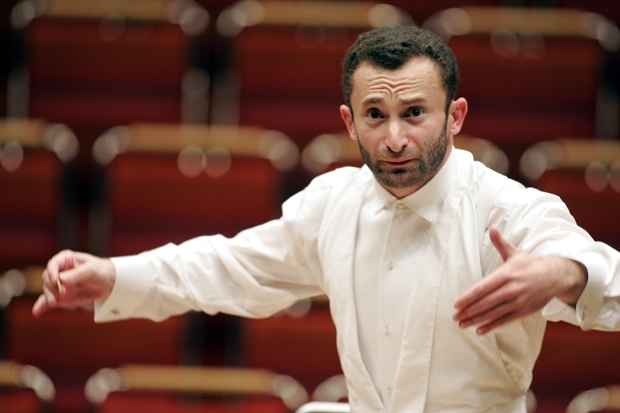Watching the Berlin Philharmonic going into conclave to choose a successor to Simon Rattle — after countless hours of secret discussion they have chosen Kirill Petrenko — reminds one of little less than the election of a pope. In both cases the expectation is the same: the organisations are so iconic that they must continue into the future without a hitch and without question. Whatever sort of job they are doing, or have done, they have become too much a part of normal life to be abolished.
Why is it that symphony orchestras of any standing are expected to survive indefinitely, where smaller musical organisations, though they may be just as established, are not? What are the long-term prospects for the Monteverdi Choir after John Eliot Gardiner retires? Or for Christopher Hogwood’s Academy of Ancient Music — Hogwood has recently died, and a succession has taken place, but AAM is hardly being financed out of the public purse. The same could be asked of Trevor Pinnock’s English Concert. The prognosis for professional choral ensembles is probably worse. What happened to the John Alldis Choir? What will happen to the Tallis Scholars? Are we all thought to be project ensembles, with a problem to solve and no shelf-life after we’ve solved it? One forgets that the great symphony orchestras were project ensembles once, until they became part of the establishment.
The irony is that becoming part of the establishment means that an ensemble is likely to have lost its original thrust. There is no other way: if it wants public financing it must appeal to the non-specialist, which means it must join the mainstream. From there it can only change direction with extreme caution, or be thought dangerously revolutionary. In this year’s Proms what, in reality, will distinguish the BBC Scottish Symphony Orchestra’s interpretation of Sibelius’s Second Symphony (15 August) from the BBC Symphony Orchestra’s version of Sibelius’s Sixth and Seventh Symphonies (17 August)? I wager almost nothing in the sound, and very little in anything else. To get a challengingly different view of the standard repertoire one needs to turn to a relatively recently formed ensemble, which at least began life by flashing two fingers at normality: the Orchestra of the Age of Enlightenment performing Brahms’s First Symphony (1 September).
There’s a lesson here, which the OAE might heed. The Berlin Philharmonic started in an almost identical way to them, almost exactly 100 years earlier — as a splinter group escaping from an existing organisation whose conductor they had grown tired of. In the case of the OAE, this was mainly Hogwood; in the case of the Berlin Philharmonic it was one Benjamin Bilse, and they duly called themselves ‘The Former Bilse’s Ensemble’. Soon they were the Phiharmonisches Orchester, a move towards respectability which went a long way towards guaranteeing their long-term survival. Where would the OAE like to be in 30 years’ time? Still flying the flag of revolutionary interpretations and as likely as not struggling for cash; or witnesses of how their once-revolutionary ideas have been accepted by everyone around them, and recipients of reliable state funding?
The temptation to go for security must be almost irresistible. But if you want to try to juggle both — have money and challenge ideas — here is a check-list of dos and don’ts. Do try to have been founded in the 19th century. If you cannot manage this, do not resort to naming the ensemble after yourself — this is a cast-iron formula for putting an end-date on just about anything requiring public money. Remember the Reginald Jacques Orchestra? Or the Boyd Neel? This error was what dished the John Alldis Choir. Remember that if you are doing something really outlandish (aka mould-breaking and exciting), it will take longer for you to be accepted by the public at large, and certainly by politicians. You will have to take the long view on how influential your ideas are, and how long you are prepared to live on the edge while peddling them, with every chance of being forgotten at the end of the process anyway.
My third will sound like sour grapes, but is meant to apply widely: don’t deal in singers who sing with no wobble. Whereas the non-specialist may nod smilingly at an ensemble they’ve never heard of made up of instrumentalists, singers who sing straight are too far off the beaten track at the moment for any hope of a vocal ensemble winning proper backing. The day may yet dawn when singing a cappella music in a stylish way is recognised to be as culturally desirable as performing symphonies. And indeed the acceptance of choral music as a viable secular art-form is slowly advancing, so one never knows. The future could be exciting. But for the present it’s heads down, and keep the ideas coming.






Comments